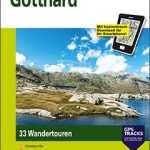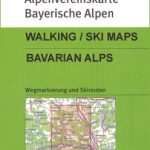Category Archives: Non-Fiction & Reference
International Convention on OPRC – E-Reader

Please allow 1-2 working days for the license to be issued by email. This Convention was adopted at a conference convened in November 1990 for the purpose of establishing precautionary measures and effective preparation for combating oil pollution incidents involving ships, offshore units, sea ports and oil handling facilities. The publication includes:- Final Act of
OPRC-HNS Protocol 2000 – E-Book
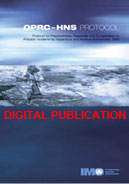
Please allow 1-2 working days for the license to be issued by email. ***********************************************************The 1990 Conference on International Co-operation on Oil Pollution Preparedness and Response invited IMO to initiate work to develop an appropriate instrument to expand the scope of the International Convention on Oil Pollution Preparedness, Response and Co-operation, 1990, to supply, in whole
Response to a Marine Oil Pollution Incident – E-Reader
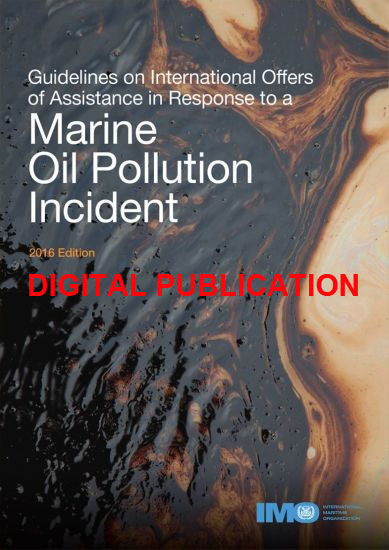
Please allow 1-2 working days for the license to be issued by email. This publication provides Guidelines on international offers of assistance (IOA) in response to a marine oil pollution incident and is designed for use by any country, particularly parties to the International Convention on Oil Pollution Preparedness, Response and Co-operation, 1990 (OPRC 1990),
Manual on Oil Pollution (Section I, Prevention) – E-Reader
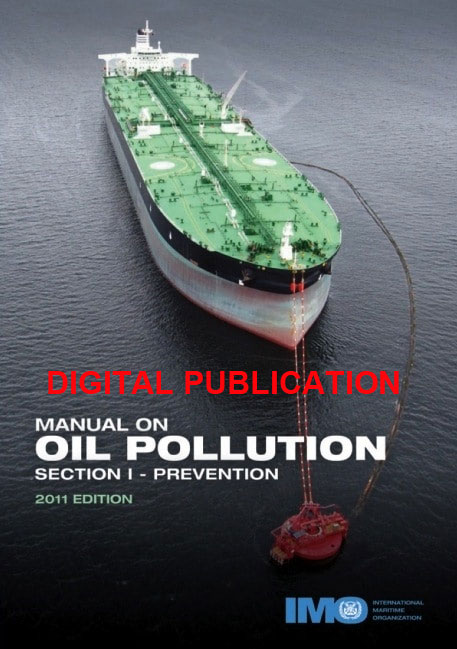
Please allow 1-2 working days for the license to be issued by email. This Section of the Manual on Oil Pollution is intended to provide practical guidance related to the prevention of pollution from ships, and describes procedures for the handling of oil cargoes, bunkering, ship-to-ship transfer operations, transfer operations involving offshore units and operations
Manual on Oil Pollution (Section II, Contingency Planning) – E-Reader
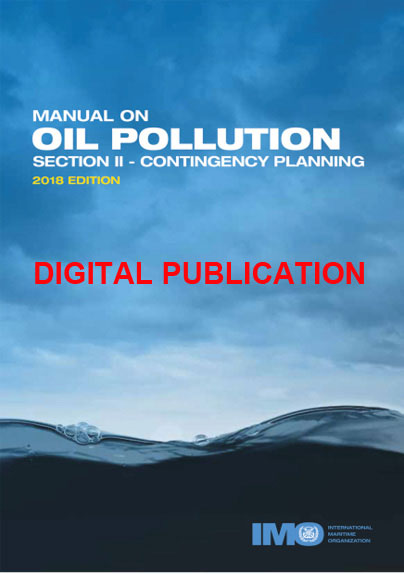
Please allow 1-2 working days for the license to be issued by email. This publication aims to assist governments in establishing a national oil spill response system and, in developing or revising their national oil spill contingency plans. The manual also includes information related to contingency planning for offshore installations, sea ports and oil handling
Manual on Oil Pollution (Section III, Salvage) – E-Reader
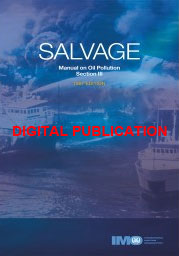
Please allow 1-2 working days for the license to be issued by email. The Manual on Oil Pollution currently consists of four sections (sections V and VI are imminent), some of which have already been revised since they were first published. Section III – Salvage was first published in 1983 and has now been extensively
Manual on Oil Pollution (Section IV, Combating Oil Spills) – E-Reader
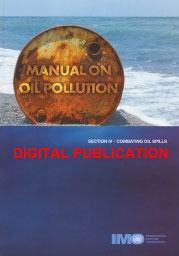
Please allow 1-2 working days for the license to be issued by email. This edition of Section IV draws on the experience and lessons learned by Governments and industry in responding to marine oil pollution world-wide during the last thirty years. It builds on earlier editions, first published in 1972 and revised in 1980 and
Manual on Oil Pollution (Section V, Administrative Aspects of Oil Pollution Response) – E-Reader

Please allow 1-2 working days for the license to be issued by email. The Marine Environment Protection Committee (MEPC), at its thirty-third session, agreed that a new section V of the IMO Manual on Oil Pollution, dealing with administrative aspects and, in particular, with the roles and functions of entities which could be involved in
Control and Management of Ships` Biofouling – E-Reader
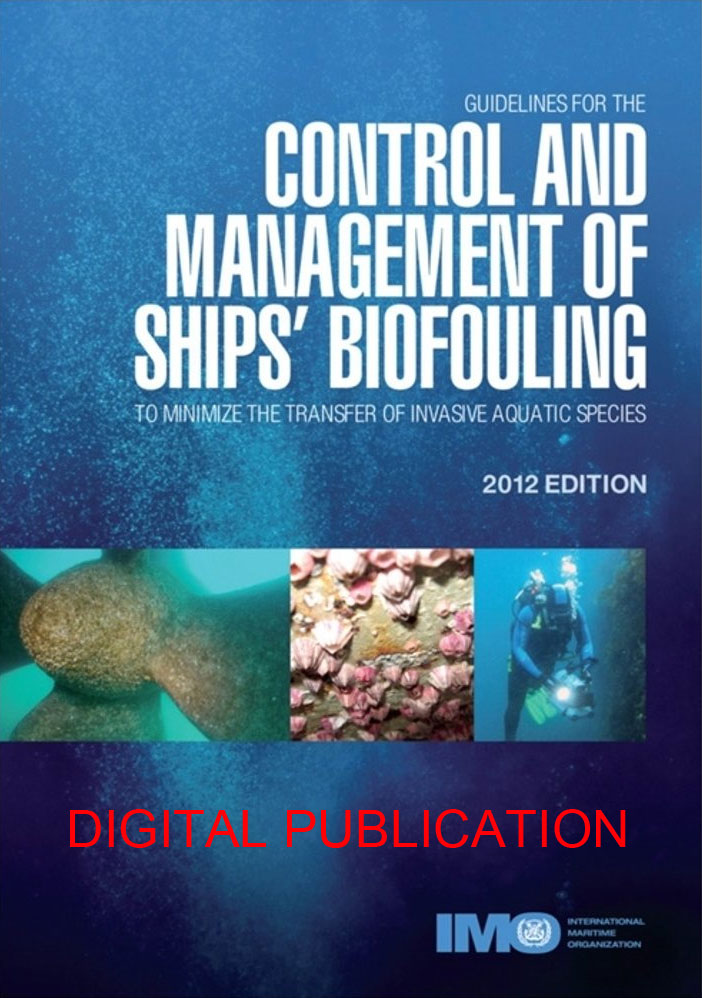
Please allow 1-2 working days for the license to be issued by email. These Guidelines for the control and management of ships` biofouling to minimize the transfer of invasive aquatic species (hereafter `the Guidelines`) are intended to provide a globally consistent approach to the management of biofouling.As scientific and technological advances are made, the Guidelines
Manual on Oil Pollution (Section VI, IMO Guidelines for Sampling and Identification of Oil Spills) – E-Reader
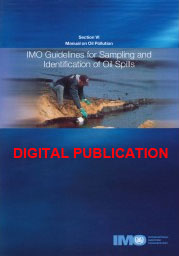
Please allow 1-2 working days for the license to be issued by email. The IMO Guidelines from Sampling and Identification of Oil Spills are intended to provide guidance to Governments, including those of developing countries, on the techniques, equipment and strategies for sampling oil to identify unknown sources of spilled oil. Although references are given
Oil Pollution Prevention of the Sea Convention (OILPOL) – E-Book
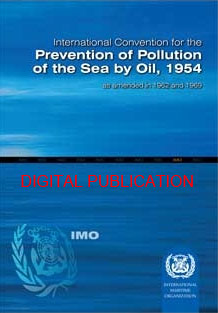
Please allow 1-2 working days for the license to be issued by email. This Convention was the first multilateral instrument to be concluded with the prime objective of protecting the environment. It is concerned with the agreement between the Governments involved to prevent pollution of the sea by oil discharged from ships. The text published
IMO/UNEP Guidelines on Oil Spill Dispersant Application Including Environmental Considerations – E-Book
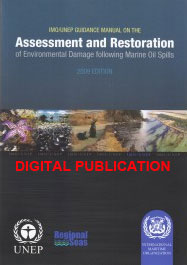
Please allow 1-2 working days for the license to be issued by email. The Guidelines provide up-to-date information on the use of oil spill dispersants. They are intended primarily for use by Member Governments and other oil spill responders and should be read with the Manual on Oil Pollution, section IV: Combating Oil Spills. The
Reporting Incidents under MARPOL – E-Reader
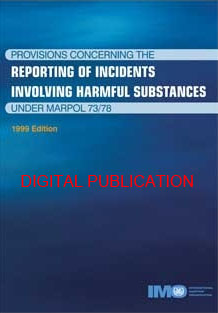
Please allow 1-2 working days for the license to be issued by email. First published in 1986, the new edition contains:- Article 8 of MARPOL 73/78- Resolution MEPC.21(22)- Amendments to Protocol I of MARPOL 73/78- Resolution A.851(20) – General Principles for Ship ReportingSystems and Ship Reporting Requirements, including Guidelines for Reporting Incidents Involving Dangerous Goods,
Oil Spill Risk Evaluation – E-Book
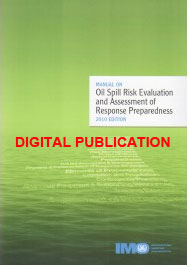
Please allow 1-2 working days for the license to be issued by email. This Manual provides:- Information on oil spill risk evaluation and assessment for the development of preparedness and response;- Guidance for industry and Governments, particularly those of developing countries, in assessing risk and the adequacy of contingency plans; and- Suggestions on how to
Guidance for Dredged Materials, 2009 Multilingual Edition – E-Book
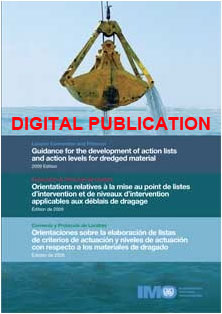
Please allow 1-2 working days for the license to be issued by email. The guidance assists regulators and policy makers on the selection of Action Lists and the development of Action Levels for dredged material proposed for disposal at sea. An Action List is a set of chemicals of concern, biological responses of concern, or
IMO/UNEP Guidance Manual on Assesment and Restauration – E-Book
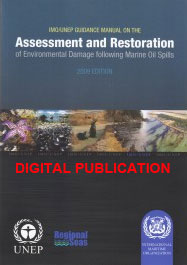
Please allow 1-2 working days for the license to be issued by email. The objective of the Manual is to provide guidance on strategies that may be used to assess the damage and subsequent recovery of the environment resulting from marine pollution incidents. Available techniques are considered together with criteria to help judge the feasibility
International Grain Code, 1991 Edition – E-Reader

Please allow 1-2 working days for the license to be issued by email. The Maritime Safety Committee, at its 59th session (May 1991), adopted a new International Grain Code. This replaced the original chapter VI of the 1974 SOLAS Convention, which contained detailed regulations on the carriage of grain in bulk, with more general requirements
BLU Code (Code of Practice for the Safe Loading and Unloading of Bulk Carriers Inc. BLU Manual) – E-Reader
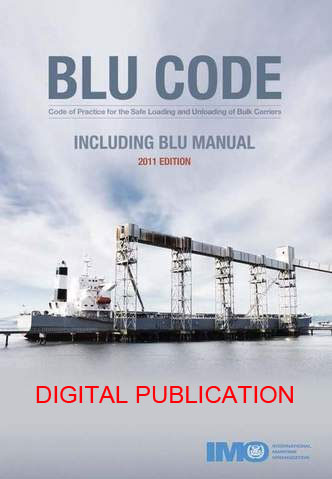
Please allow 1-2 working days for the license to be issued by email. BLU Code including BLU Manual contains the Code of Practice for the Safe Loading and Unloading of Bulk Carriers, incorporating all amendments up to and including 2010, and the Manual on loading and unloading of solid bulk cargoes for terminal representatives, incorporating
IMO/ILO/UNECE Code of Practice for Packing of Cargo Transport Units (CTU Code) – E-Reader
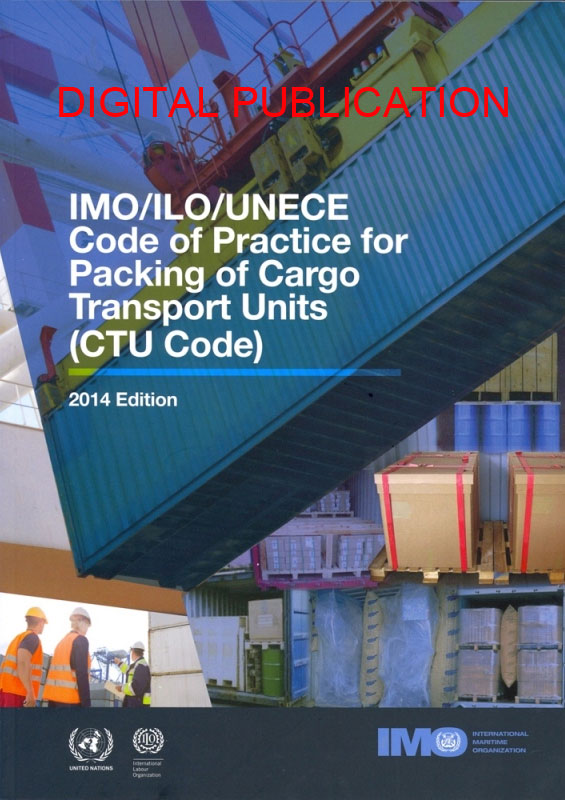
Please allow 1-2 working days for the license to be issued by email. Innovations and developments in the types of cargoes carried in freight containers have allowed heavy, bulky items which were traditionally loaded directly into the ships` hold to be carried in cargo transport units (CTUs).The IMO/ILO/UNECE Code of Practice for Packing of Cargo










